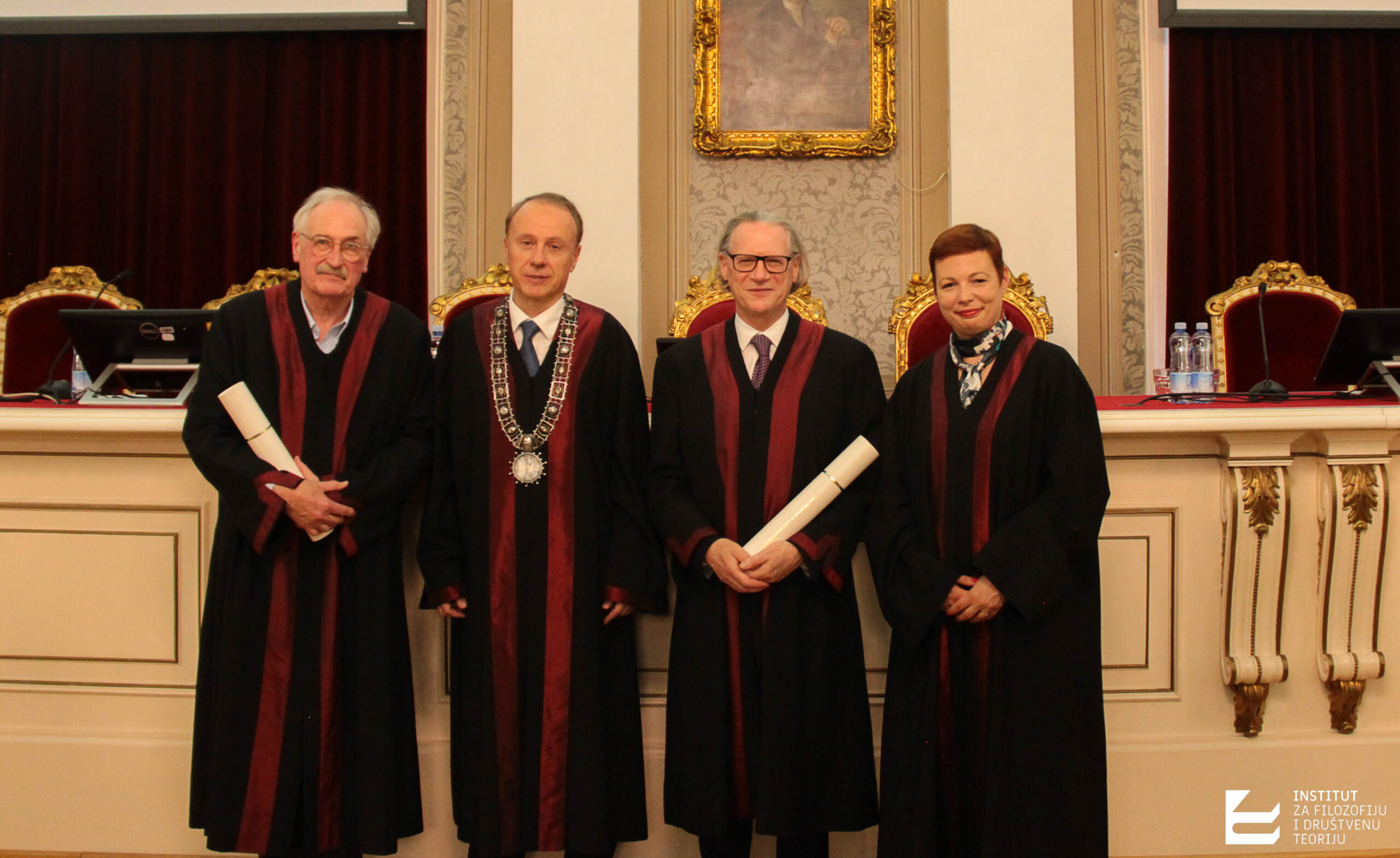Conference Change in Belgrade
The Conference Change, held from June 12th to June 15th in Belgrade, was undoubtedly one of the key academic events in the region this year. The conference gathered over 150 participants, notable for its scope, diversity, and quality of academic exchange. Attendees represented a wide range of backgrounds, including philosophers, sociologists, psychologists, political scientists, and more. They came from various geographies, encompassing the region, Europe, and beyond, with scholars from Latin America and Africa also in attendance. This diversity provided a stimulating environment for fruitful discussions and collaborations.
Over the course of the conference the University of Belgrade awarded three honorary doctorates during the conference to distinguished academics: Étienne Balibar, University of Paris X Nanterre and University of Columbia, Jonathan Wolff, Blavatnik School of Government, Oxford University and Axel Honneth, Goethe University Frankfurt and Columbia University. Each of them a prominent figure in their respective fields, and their simultaneous recognition sent an important message: commitment to positive change can unite a diverse group of people. Doctor Honoris Causa Ceremony was organized at the University of Belgrade Rectorate Ceremonial Hall on June 13th, with opening addresses made by Minister of Science, Technological Development and Innovation Ms. Jelena Begović, Vladan Đokić, Rector of the University of Belgrade and Gazela Pudar Draško, Director of the Institute for Philosophy and Social Theory. The ceremony was followed by by the short addresses by the laureats as well as the joint panel on the thematic focus of the conference.
The thematic focus of the conference, simply titled “Change,” resonated with many contemporary issues and problems. It brought together diverse perspectives and traditions of thought to jointly think, discuss, and act to open new horizons in the ever-changing economic, social, and political environment. This occasion was used to reach out to the wider community and influence the public sphere, facilitated by the opening address at the award ceremony made by the Minister of Science and the Rector of the University of Belgrade. It was a perfect occasion to raise the profile of the humanities and social sciences within the research and academic ecosystem, but also to facilitate a full integration of the regional academic community into the European academic and public space.
The methods of academic exchange and collaboration exceeded the traditional repertoire of academic gatherings. In addition to panels and keynote addresses, the conference featured workshops, film screenings, and open panels accessible to the public. Moreover, several panels included presentations by activists and civil society organizations, thus bridging the often significant gap between the academic community and civil society actors striving to effect change on the ground. Parts of the conference program were also hybrid, allowing keynote addresses to reach a much wider audience and significantly increasing the reach of the conference.
Conference was supported by the Ministry of Scence, Technological Development and Innovation of the Republic of Serbia, Open Society Foundations and Open Society Foundations – Westrn Balkans, with contributions by Institut Francais Belgrade, Austrian Cultural Forum Belgrade and Instituto Italiano de Cultura. The conference program can be found on this link.

